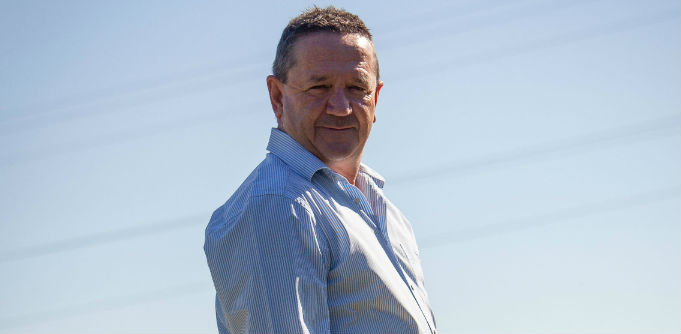
Business coach Chris Morrison. Source: Supplied.
Not enough people want to work in agriculture in Australia. The skill shortage is leading to lost opportunity and low productivity. Major food and fibre companies that rely on Australian agriculture production are experiencing a decline in their operational profits and are shedding sections of their business to improve their trading position and share price.
A current example of this occurring is the business adjustment made by Lion which, according to The Australian, “slashed the value of the portfolio of its dairy and juice business by $530 million after recent efforts to sell the business stalled”. Subsequently, Lion recently sold off its cheese business to Canadian-based Saputo for $280 million.
Is Australia’s agricultural future bright?
With the right leadership and policy structure, Australian agriculture is estimated to grow from a $60 billion industry to a $100 billion industry in the next two decades.
However, Australian agriculture has some serious future planning to do to ensure its survival.
The federal government, in partnership with industry bodies, needs to decide on and move towards a shared vision for the industry. Agriculture has important relationships to employment, education, the climate and the economy.
So why wasn’t agricultural policy a centrepiece of the recent federal election?
We all eat and clothe ourselves, so isn’t food and fibre worth our attention?
An uncertain future
Australia’s manufacturing industries by and large have disappeared. Agriculture runs the risk of facing the same fate. Why? One dominant pressure is our inability to process product competitively on price. If we use beef as an example. Brazil, Argentina and the USA are able to process their beef more cheaply than Australians. Input costs for processors are too high in Australia compared to these other countries.
The three main input costs that are critical to the survival of Australian agricultural processing over time are labour costs (wages), energy costs and government regulation (compliance). These are the three key pillars which, if not managed, will eliminate food and fibre processing in Australia as we know it.
The cost of food will need to rise to sustain these industry sectors and costs will need to be reduced. The alternative is to allow agriculture products to be imported from countries with lower input costs, lower quality and lower price. It is a real possibility that the Australian dairy industry could disappear if significant changes are not made immediately.
Lessons learnt from the demise of Australian manufacturing
1. Producers have growing control
Many farmers are changing the way they do business. They are taking more control of their product and processing, as well as marketing their products into niche environments. Currently, milk supply through major retailers is under threat due to declining milk production. Small-business owners who need milk are using niche suppliers to guarantee supply, albeit at a higher price.
2. Australian wages might be too high
When fresh produce is put down the drain or left on the trees or the vine to rot, because farmers can’t afford the wages to harvest their product, we have a major problem.
A business solution might well be to reduce the reliance on human labour and mechanise food production. Machines are more reliable and cost the same no matter what hours they work.
3. We must act on energy costs
Coal-fired power stations, uranium mines or renewables. The options are many, the opinions are polarised. The energy debate in Australia is hurting the industry and small business. What is needed is s stronger leadership.
4. Too much red tape
Farmers and small-business owners are busy people. There are just not enough hours in the day to get all the jobs done. It is widely thought that Australian businesses are over-regulated. Complying with the rules and regulations set by all three tiers of Australian government is too onerous.
Australia has always been touted as the lucky country. In recent years, more people are looking outside of Australia for their luck.
5. Farmers need to plan their success despite the government
To succeed in farming in Australia, you can’t simply rely on the government.
Farmers have to close the gap in their business between information and action.
Just like you can’t control the weather, you can’t change government policy. Agricultural business owners should focus on what they can control, because the government might be too slow to assist in achieving your business dreams.
NOW READ: Farming must change its image and embrace technology, city life and millennials


COMMENTS
SmartCompany is committed to hosting lively discussions. Help us keep the conversation useful, interesting and welcoming. We aim to publish comments quickly in the interest of promoting robust conversation, but we’re a small team and we deploy filters to protect against legal risk. Occasionally your comment may be held up while it is being reviewed, but we’re working as fast as we can to keep the conversation rolling.
The SmartCompany comment section is members-only content. Please subscribe to leave a comment.
The SmartCompany comment section is members-only content. Please login to leave a comment.